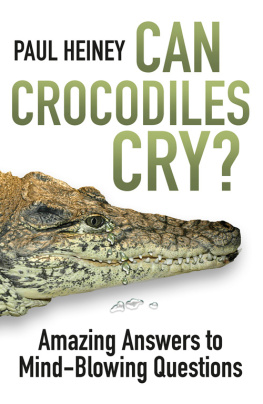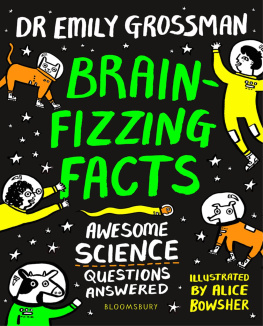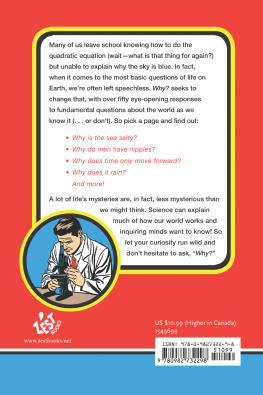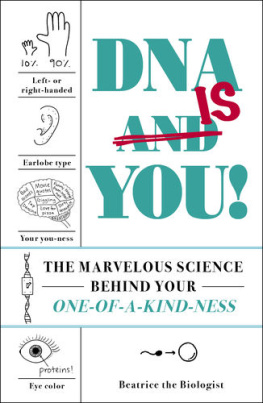
Contents
Ask any gold miner and hell tell you that the deeper you dig, the better the chances of finding riches. Im beginning to feel like that gold miner, because for a few years I have been digging deep into a vast scientific archive, and its true the gold not only keeps appearing but it seems to get better every time I excavate. Its richness comes in the form of questions asked by thousands of young people who simply wanted to satisfy their curious minds. The answers, in return, came from a gang of dedicated scientists, all specialists in their fields, who simply wanted to give young people the satisfaction of an explanation of what was puzzling their minds.
It was inspired by a government project to encourage scientific curiosity, and it was hugely successful. It was called Science Line and over a few years it was inundated with questions on everything from black holes to space travel; frogs to frostbite; cats to cataclysms. You name it, there was no subject that the enquiring minds didnt direct themselves at, and no subject the experts did not dare to tackle.
It was good fortune indeed that when the project closed the vast database of knowledge was not destroyed. Instead, like that gold miner, I have been digging deep into it to bring you, once again, some of the gems it contains.
My first harvest was called Can Cows Walk Downstairs? , but those 300 questions hardly skimmed the surface. Then came Do Cats Have Belly Buttons? , and still the questions were being unearthed. Now I offer you Can Crocodiles Cry? to prove that there is no end to the riddles that a scientific mind can come up with.
However, in amongst the inspired, thoughtful and sometimes plain crazy questions, I did find one message from someone who was clearly having a bad day. In a moment of bad temper, he bashed out the following message: My Dad says that science and finding out things is a lot of fun. I dont agree. So, how do you persuade someone that theyre wrong about science? This is the reply he got, and I couldnt agree more. Read it carefully, even if you think science might not be your thing, and see if you change your mind:
I think science is very exciting or I wouldnt spend my life doing it. I love my job and couldnt imagine doing anything different. Im constantly finding out new things and learning about different subjects so I never get bored. However, I can remember a time when I found some bits of science boring. When I was at school for example, I found some bits of science boring because I had to do them and wasnt interested in them at the time. If only theyd teach me something I wanted to know.
I can understand that some people might not be interested in science thats fine. Im not particularly interested in football, and I dont think Id enjoy a discussion about art because I dont know much about it. Everyones different and if you dont find science interesting, thats OK.
But remember, the science you do at school isnt the only science there is.
I bet you never find out why the sky is blue at school, or why your hands go wrinkly in the bath, or what shape wombat pooh is! Science is all around us and its fascinating.
Ill go further and bet that, at school, they never taught you why clouds dont float away, why apples are round and not square, how long it takes to get to the Sun in a bus, or what makes bags under your eyes. But the answers to all those questions, and 300 more, start here
Happy digging.
Talking dogs to purring tigers;
clever cats to sleeping flies;
blinking fish to baby turtles;
yawning birds to rabbits tails
Why cant dogs talk?
For a start, the shape of their mouths, their vocal chords and lack of a voice box are all wrong for making the sorts of sounds that humans make. We are exactly the opposite of dogs, we have long throats and small mouths and thats why we cant bark like dogs, or at least not in a way that a dog would recognise. There was once a famous dog on television in the UK who said sausages I know because I interviewed him! Have a look on YouTube but he wasnt really saying sausages; it was the way he growled that made it sound as if he was speaking.
Talking is far more than just making sounds. The forming of words and making words into phrases and then saying them calls for a lot of brain power, and dogs simply havent got it. Even so, dogs can talk to each other in different ways and theyre cleverer at it than we are. We use words to communicate, and perhaps the looks on our faces too, but dogs employ their mouths, legs and tails, bare their teeth and position their ears to get their message across. Why would they need to talk as well?
Why do dogs bark at each other?
Wouldnt it be wonderful if we really knew what dogs were trying to say to each other through their barks? What we do know is that dogs have many different types of bark playful, nervous, excited, fearful, suspicious, stressed, even lonely. They also bark to protect their own territory and will only fight another dog if all else fails they dont like conflict. There are many barks from ruff-ruff to growling to yip-yip and once you get to know your dog, you start to get a hint of what its trying to communicate. You can be pretty certain that the first barks that two dogs exchange will be about territory get off my patch!
Why dont dogs sweat?
Sweat is the bodys way of trying to control its temperature and rid itself of some unwanted chemicals. When the body is overheated, special structures in the skin send a signal to the bit of your brain that controls temperature, which then sends signals to the sweat glands to produce sweat and transport it to the surface of the skin. Evaporation of the sweat cools the skin and the body temperature drops. Thats how it works for us. Animals such as dogs and cats only have sweat glands on the pads of their paws, which is not a large area. So, they have evolved to use panting as a way of controlling their temperatures by drawing cool air over their tongues. That is why you often see dogs with their tongues hanging out in hot weather. For some small animals, such as rats and mice, they cannot afford to lose water by sweating and so have no sweat glands at all.
Do dogs eat in the same way as humans?
Dogs do eat in exactly the same way as humans, contrary to appearances! The process of digestion starts when food is taken into the mouth, and is broken down both by the teeth and by saliva. The smaller particles of food then pass into the stomach where they are broken down by an assortment of chemical reactions. This is exactly the same for dogs as for humans. Dogs have larger canine teeth than we do, from having lived for a long period of their existence in the wild where they have had to hunt and kill for food with only their mouths as a weapon. They also have molars and pre-molars just as we do, and chew food to break it down, just like us. The only thing they havent quite managed yet are table manners.
What makes cats purr and dogs bark?
Lets deal with cats first. This is a question to which there might be no proper answer, but lots of theories. One says purring is the vibration of false vocal cords which are two folds of membrane behind the true cords, located in the larynx. Not all zoologists agree. Another theory suggests that purring is the direct result of turbulence in the bloodstream of the main vein returning blood to the heart from the body. This narrows in order to pass the liver and diaphragm, and the theory says that when the cat arches its back the blood forms eddies in this bottleneck. This in turn sets up vibrations in the chest which are amplified in the cavities of the skull.
Next page










